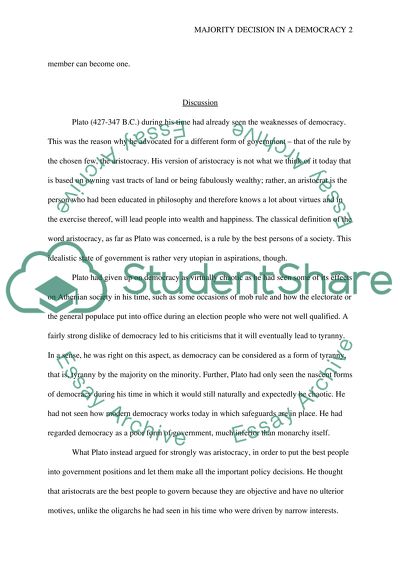Cite this document
(“Majority decision in a democracy Research Paper”, n.d.)
Retrieved from https://studentshare.org/politics/1428712-majority-decision-in-a-democracy
Retrieved from https://studentshare.org/politics/1428712-majority-decision-in-a-democracy
(Majority Decision in a Democracy Research Paper)
https://studentshare.org/politics/1428712-majority-decision-in-a-democracy.
https://studentshare.org/politics/1428712-majority-decision-in-a-democracy.
“Majority Decision in a Democracy Research Paper”, n.d. https://studentshare.org/politics/1428712-majority-decision-in-a-democracy.


